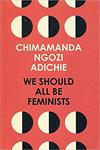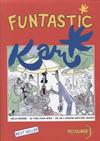
Between the Assassinations
1 journaler for this copy...
The title of "Between the Assassinations" refers to the seven-year period between 1984 -- when Indira Gandhi was assassinated -- and 1991 when her son Rajiv was also killed. Set in India, the book captures a cross-spectrum view of life in a town called Kittur, where the characters include a drug addict's chldren who have to beg to keep up their father's habit; a 29 year old furniture delivery man who realizes that this is his life; a servant to a wealthy man who has no control over her own life; factory owners and workers; a student who explodes a bomb at his school in protest of caste distinction; a boy whose one ambition is to become a bus conductor, along with many more. The book is set up so that each story fits into a fake guidebook for tourists who might wish to visit Kittur.
Between the Assassinations looks at class and caste, poverty, corruption, politics, moral bankruptcy, and the overpowering awareness by many that change is not coming around any too soon. It is a sad but touching book, one that haunts you for a while after you've finished it.
The tourist guidebook setting works well -- the reader sees the city of Kittur as it could and should be, but once you get into the individual stories, the reader gets into the reality and hopelessness of the situation of many of the people who live there. Some of the stories work very well, but there are some that kind of wind down and just get strange so that you're left on your own to figure out what's just happened and why. This is definitely a book demanding reader participation.
The reader is left to decide whether or not there is hope for the characters in this book, and for India overall. Some of the characters realize that their situation is untenable and have hope for the future, while some (such as the servant, Jayamma) hope that the next life in the cycle of reincarnation will be better. Some know that this is it, and that they are locked in to their lives due to their station in life. Some struggle with their demons while trying to maintain the basic element of humanity and morality in their lives. In the meantime, life goes on, at least until someone comes up with a solution.
Bleak, yes, but very realistic in tone. Adiga's writing is excellent. I would recommend this book for people who do not mind a) having to put some thought and time into these stories and b) reading a book that leaves no room for warm and fuzzy feelings anywhere. Not all literature has to have a happy ending, because, well, in life sometimes there is no such thing.
Between the Assassinations looks at class and caste, poverty, corruption, politics, moral bankruptcy, and the overpowering awareness by many that change is not coming around any too soon. It is a sad but touching book, one that haunts you for a while after you've finished it.
The tourist guidebook setting works well -- the reader sees the city of Kittur as it could and should be, but once you get into the individual stories, the reader gets into the reality and hopelessness of the situation of many of the people who live there. Some of the stories work very well, but there are some that kind of wind down and just get strange so that you're left on your own to figure out what's just happened and why. This is definitely a book demanding reader participation.
The reader is left to decide whether or not there is hope for the characters in this book, and for India overall. Some of the characters realize that their situation is untenable and have hope for the future, while some (such as the servant, Jayamma) hope that the next life in the cycle of reincarnation will be better. Some know that this is it, and that they are locked in to their lives due to their station in life. Some struggle with their demons while trying to maintain the basic element of humanity and morality in their lives. In the meantime, life goes on, at least until someone comes up with a solution.
Bleak, yes, but very realistic in tone. Adiga's writing is excellent. I would recommend this book for people who do not mind a) having to put some thought and time into these stories and b) reading a book that leaves no room for warm and fuzzy feelings anywhere. Not all literature has to have a happy ending, because, well, in life sometimes there is no such thing.









